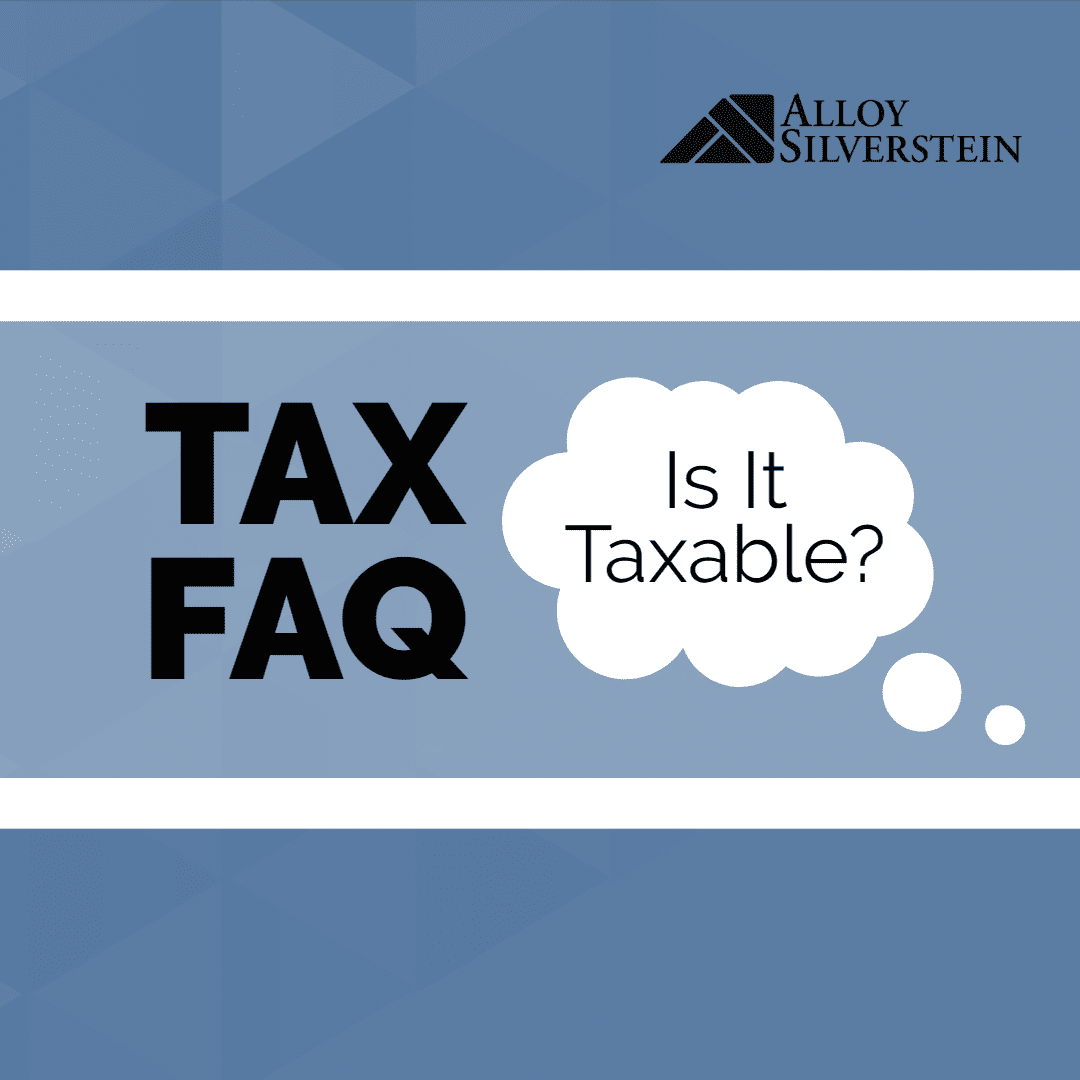
There’s income and then there’s taxable income. With the IRS, it’s not always as straightforward as you’d like. Below are five commonly asked questions accountants are asked when it comes to taxability of income in certain situations.
As always, it is best to consult with your CPA or accountant for guidance on your individual situation.
Answer: Yes, unemployment benefits are subject to federal income tax. The government unit that paid you should provide you with a year-end statement (Form 1099-G) showing the amount that is to be included as income on your tax return.
To avoid having a large tax balance due at filing time, you should consider filling out Form W4-V to have the proper amount of income tax withheld from each unemployment check
Answer: Money received from worker’s compensation for sickness or illness is not subject to income tax. Amounts received under a private accident policy for which you pay the premiums are also nontaxable. To the extent your employer pays the insurance premiums, your benefits will be subject to tax.
The punitive damage amount in any legal settlement, if any, is generally includible in taxable income as is any interest included in the damage award.
Answer: Up to 85% of social security benefits can be taxed. Whether your benefits will be taxed depends upon your total income from both taxable and tax-exempt sources. Once your total income reaches $25,000 ($32,000 for married couples), a portion of your benefits will be subject to income tax.
This is important to know as you start receiving benefits. It may impact how much you are willing to work in a part time job and it may impact the amounts you withdraw from retirement accounts.
Answer: That depends on the amount of profit from the sale. Single taxpayers can exclude from tax up to $250,000 of profit on a home sale and married couples can exclude up to $500,000. To take the full exclusion, you must generally have owned and used the home as your principal residence at least two of the five years prior to its sale. Also, you can’t use the exclusion more than once every two years. A reduced exclusion may apply in some cases.
Prior to selling your home it is important to review your situation. See also: Tax Facts When You Buy a Home.
Answer: Gift taxes are due on certain transfers of wealth. If and when gift taxes are due, the donor is liable for them. The recipient of the gift is not taxed. (Note that gifts to charity are not subject to gift taxes.)
The combined estate and gift exclusion is $11.4 million. In addition, you’re entitled to make annual gifts of up to $15,000 in 2018 and 2019 to as many individuals as you like without incurring a gift tax. The tax law lets you give away more than this annual limit in certain cases. For example, you can generally make unlimited gifts to your spouse. You can also pay an unlimited amount of medical or tuition expenses for another person as long as your payments are made directly to the institution.
Gifts beyond the limits indicated are subject to tax at a maximum rate of 40%. If this occurs, ask for clarification on how this should be reported.
Empowering business owners and individuals in South Jersey and Philadelphia to feel confident through proactive accounting and advisory solutions.